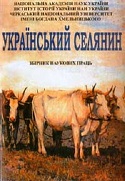THE SYSTEM OF NON-GOVERNMENTAL EDUCATIONAL INSTITUTIONS OF THE UKRAINIAN PEASANTRY IN EASTERN GALICIA AND VOLHYNIA IN 20-30S OF THE 20TH CENTURY
Main Article Content
Abstract
Introduction. At the present stage of Ukrainian-Polish relations and the establishment of both states in
the world and European communities, the lessons of the restoration of national statehood, the formation and
development of the Polish state in the diffi cult conditions of interwar Europe are becoming especially relevant.
The study of the history of the Second Polish Republic is important for domestic historians in terms of the long stay
of part of the Ukrainian lands as part of Poland. The processes that took place in the relations between the two
peoples during the interwar period are quite complex and require detailed coverage.
The purpose of our study is to clarify the features of the system of non-governmental education of the
Ukrainian peasantry in Eastern Galicia and Volhynia in the 20-30s of the twentieth century.
Results. Highlighting the state of Ukrainian education in the Ukrainian lands of the Second Polish Republic,
we note the infl uence of the Greek Catholic Church and the clergy on the development of educational processes.
Due to the fact that all public schools of different levels of training were only with the Polish language of instruction
and access to them was diffi cult for Ukrainian youth, the church was actively involved in the formation of a network
of Ukrainian educational institutions. Institutes at the monasteries of the Basilian Sisters played a signifi cant role
in the upbringing of young people. These institutions were similar to dormitories in their organization.
Conclusion. During its existence in the Polish state, the Ukrainian education system did not lose its national
features, which became possible due to the active activity and cooperation of the intellectuals, cooperatives and
the Greek Catholic clergy. “Ridna Shkola” and “Prosvita” became the basis of a system of non-governmental
educational institutions in which Ukrainian youth and peasants had the opportunity to study in the Ukrainian
language. Despite the objective challenges, Ukrainian societies have managed to organize at the appropriate level
the educational process in preschools, people’s schools, teachers’ seminaries, gymnasiums and vocational schools.
“Ridna Shkola” and “Prosvita” conducted training courses and lectures for the illiterate, engaged in library and
publishing affairs.
Article Details
References
Hnot, S. (2001) Hreko-katolytska tserkva i orhanizatsiia suspilnoi opiky Halychyny (1921-1939) [Greek Catholic
Church and the organization of public guardianship of Galicia (1921-1939)]. Aktualni problemy derzhavnoho upravlinnia, 6,
–309. [in Ukrainian].
Bilavich, G. & Savchuk, B. (1999) Tovarystvo «Ridna shkola» (1881-1939) [Society «Native School» (1881-1939)].
Ivano-Frankivsk: Lileya – NV. [in Ukrainian].
Mudryi, V. (1932) Mirkuvannia z nahody reformuvannia shkilnoho ustroiu. [Refl ections on the reform of the school
system]. Dilo. 27 kvitnia, 172. [in Ukrainian].
Mudryi, V. (1933) Polozhennia ukrainskoho narodu v Polshchi. [The situation of the Ukrainian people in Poland]. Dilo.
lystopada, 268. [in Ukrainian].
Torzecki, R. (1989) The Ukrainian question in Poland in the years 1923-29. [in Polish]
Mudryi, V. (1928) Kolys i teper. [Then and now]. Dilo, 8 hrudnia, 153. [in Ukrainian].
Sadowska, J. (1999). jędrzejewicz’s education reform in the years 1932-1933. Białystok. [in Polish]
Mudryi, V. (1929) Prosvita» za 1928 rik. [Enlightenment “for 1928]. Dilo, 182. [in Ukrainian].
Lishchynskyi, I. (1929) Ukrainske narodne uchytelstvo. [Ukrainian folk teaching]. Dilo, 4.07, 146. [in Ukrainian].
Virnyi, I. (1933) Kilka katehorii ukrainskoho narodnoho vchytelstva. [Several categories of Ukrainian folk teaching].
Dilo, 6.10, 221. [in Ukrainian].
Virnyi, I. (1933) V spravi sanatsii «Prosvity». [In the case of rehabilitation of “Enlightenment”]. Dilo, 29 kvitnia, 189.
[in Ukrainian].

